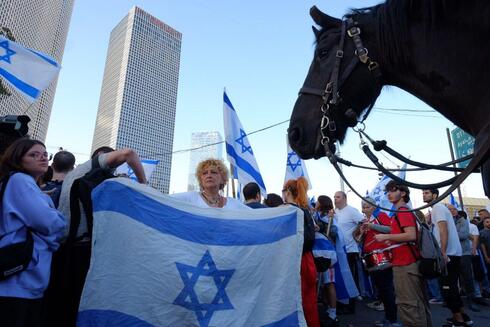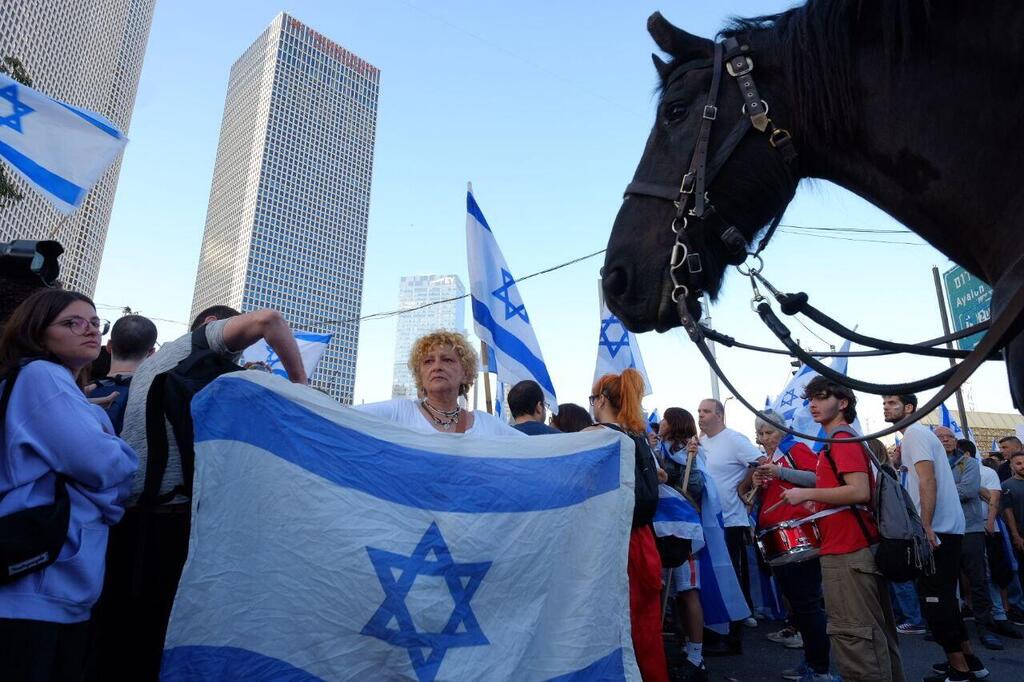
Israel government to delay disputed judiciary bill amid mass protests
It is unclear how far the bill's delay to next month's new parliamentary session, after mass protests and growing labor strikes, will satisfy either side or cool the crisis
Prime Minister Benjamin Netanyahu on Monday delayed a decision on bitterly contested plans for a judicial overhaul amid fears that Israel's worst national crisis in years could fracture his coalition or escalate into violence.
It was unclear how far the bill's delay to next month's new parliamentary session, after mass protests and growing labor strikes, will satisfy either side or cool a crisis the army chief said on Monday made "this hour different to any before".
"From a will to prevent the rift in the nation, I have decided to delay the second and third reading in order to reach a broad consensus," he said in a TV address, calling the move "a chance to avoid a civil war".
Netanyahu's hard-right coalition partner, security minister Itamar Ben-Gvir, said he had agreed to the delay in return for a deal that he could form a National Guard under his ministry - a move opponents fiercely criticize as giving him his own militia.
The government's plan to tighten parliament's control over judicial processes has triggered some of the biggest mass protests in Israeli history, with its opponents calling the move a threat to democracy.
Supporters of the law, including far-right football fans, have staged counter demonstrations and police said they were reinforcing after social media threats of violent attacks on left wing Israelis.
Netanyahu's decision to put off the legislation also followed opposition from the Histadrut labour union, which grounded flights at Ben Gurion airport with seaports, banks, hospitals and medical services also set to stop work.
The union said it had called off the strikes after Netanyahu announced the delay.
Opposition leader Benny Gantz said the decision was "better late than never" but that he would not compromise on the "basics of democracy" in any dialogue on the new law.
Israeli President Isaac Herzog, who had staged a rare intervention into politics earlier on Monday to plead with Netanyahu to halt his judicial overhaul for the sake of national unity, said stopping it was "the right thing to do".















